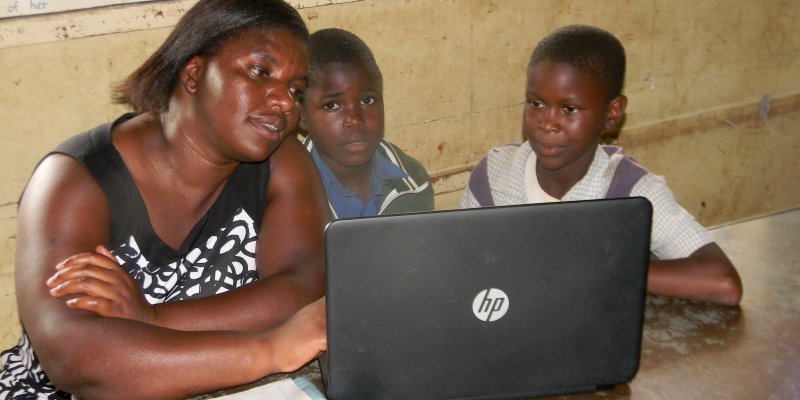
With schools being unable to resume as scheduled owing to the extension of COVID-19 lockdown, we at Gray Matters Capital carried out a ‘Remote Schooling Readiness’ survey among school customers of our portfolio company in Lagos, Nigeria – EdFin Microfinance Bank – the only financial institution dedicated to funding the education ecosystem in the country.
We had started the ‘Technologies for School Resilience’ series of blogs and mailers to schools last month, providing recommendations on the tools and resources that low cost schools can avail in order to help them in school continuity.
This ‘Remote Schooling Readiness’ survey is aimed at helping us get a deeper understanding of the constraints faced by low-cost schools not only on account of the lockdown, but also in getting to know the impediments in their online transition, so that we can come up with far more practical and easier to implement EdTech recommendations in addition to financial products to help all stakeholders of the school ecosystem in Nigeria and other markets to tide over the challenges.
Findings: Remote Schooling Readiness Survey – Nigeria
The survey insights are based on responses secured from 149 low cost private schools (based out of Lagos, Nigeria) as on 29th April, 2020
Readiness for Remote Learning

- 67.8% of schools are considering operational resumption via remote learning; with 18.1% being unsure. Of the schools which are willing to take the online route, over 80% seek technological assistance for setting up remote learning. Over 60% are willing to pay for training to help them transition into an e-school.
- 9% of the schools surveyed have initiated full-scale remote learning. 36% have initiated partial remote learning (for select subjects or select sections) while 43% are still exploring remote learning tools to implement.
- Of those schools who have initiated remote learning, the highest number of virtual classes are being conducted for primary sections – Std. 1 to 6 (38%). Remote learning for junior secondary was the least.
- Interestingly, nearly 44 % of the schools have indicated parents of students not being open to remote school resumption and remote learning for their children. This can be adduced to reasons such as limited ownership of internet enabled devices within the family, inability to have a dedicated device for the child, patchy internet connectivity, lack of tangibility associated with remote learning, among others.
Access to Digital Devices

- Of the private schools surveyed, 21% responded that their students do not have access to any digital device for online learning. Only 13% private schools had all their students equipped with an internet enabled device for online learning, while 63% private schools responded that only a few of their students had access to such a device.
- Only 19% of the schools had all their teachers equipped with digital devices to conduct remote learning, while 66.2% responded that only some of their teachers had digital devices.
Core Competencies of Teachers for Online Classes
- Less than 21% of the private schools surveyed had teachers with all the skills needed for conducting remote classes, while 62.8% had some of the basic skills.
WhatsApp rules the roost

- WhatsApp is the preferred platform of choice for teachers to engage with students (63%), parents (71%) and for collaboration with other teachers (74%) trouncing Zoom, Google Classroom and others.
Financial Wherewithal
- 23.6% of schools planning to charge fees for home schooling
- 66.4% of schools willing to avail loans to equip teachers and students with digital devices for remote learning.
Action Points
For schools to justify charging fees for remote schooling, they should ensure the continuity of high quality of engagement with students through the online channels. Convenience should be their byword, offering parents online fees payment facilities as well as online admissions.
An effective school management system for streamlining administrative and academic processes, complemented by an easy to adopt learning management system (LMS) is essential so that schools can easily shift from offline to online learning mode.
The time is also ripe for collateral backed loan products targeted at schools to enable them to digitally equip teachers and students, besides smartphone, tablet and laptop makers to customize their products and rationalize their prices to cater to the low and middle income segment.
To handhold school owners, principals and teachers of low-cost schools in Nigeria through this phase, we will be organizing the EdFin Education Digitization Series from 13th May, 2020 comprising webinars on topics such as leveraging technology for school resilience, creating a culture of remote teaching and learning, eLearning opportunities for personal and professional development, among others. There will also be online workshops focusing on practical steps and handholding to enable school owners and teachers set up and run a successful online income earning school.
Watch this space for more details.



I need more information on how to access opportunities as a nursery and primary books publisher from.Gray Matters